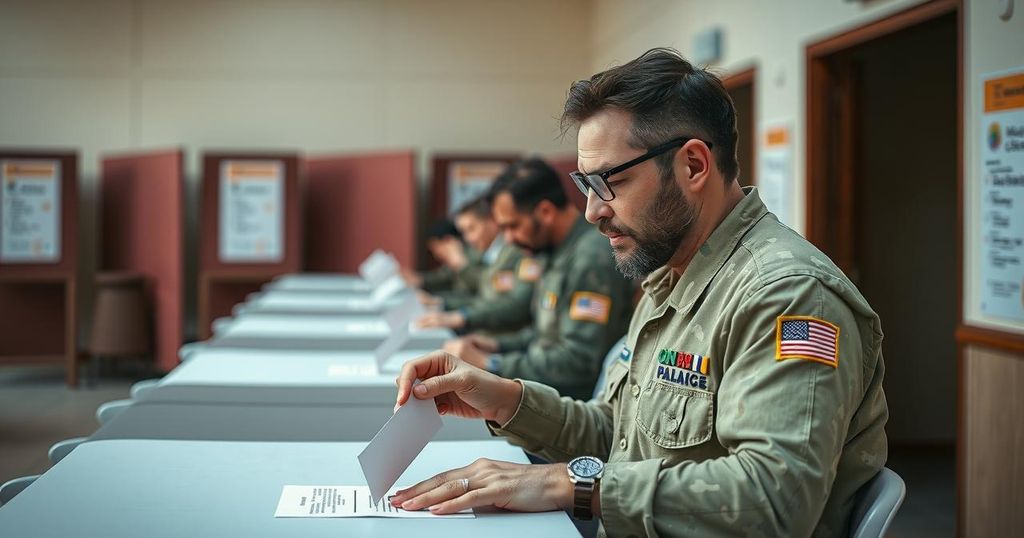Chad held a general election on Sunday following three years of military rule, with anticipated low voter turnout amid opposition calls for boycott. Early reports indicated a turnout of just 38 percent. President Mahamat Idriss Deby’s government framed the election as essential for democratic transition despite opposition claims that results were predetermined. Voting was marred by allegations of discrepancies and disenfranchisement, even as security challenges from groups like Boko Haram persist.
Chad conducted a general election on Sunday amidst a backdrop of military governance lasting three years, with government officials presenting it as an essential step toward reinstating democratic rule. Voter turnout was anticipated to be low due to calls for a boycott from opposition parties, resulting in an early reported participation rate of approximately 38 percent. Election officials attributed this lackluster turnout to adverse weather conditions, yet opposition leaders insisted that the majority of the populace refrained from voting, claiming that the election results had already been predetermined.
Opposition party leader Succes Masra remarked, “They have all stayed at home following our call, that is, the overwhelming majority.” The boycott appeared to facilitate an advantage for candidates aligned with President Mahamat Idriss Deby Itno, who initially ascended to power via military intervention in 2021 and was later elected in a controversial presidential election denounced by dissenters as rigged. In a bid to galvanize voter participation, President Deby encouraged citizens on social media to vote en masse, framing the day as historic.
Some citizens expressed their disillusionment with the electoral process. One voter, construction worker turned motorbike taxi driver, Herve Natouingan, opined, “It is pointless to cast a ballot because there is no real voting in Chad.” Conversely, others held out hope for systemic change, with Patrice Lumumba Deoumoundou emphasizing the need for improved economic conditions and social equity.
Voting was also extended to soldiers and nomadic communities over the weekend for logistical efficacy, although several discrepancies were reported, including an opposition claim of over a thousand disappeared ballots. The voting process unfolded against the backdrop of ongoing security challenges posed by Boko Haram, ending a military accord with France, and increasing tensions regarding Chad’s involvement in regional matters, particularly in the conflicts of neighboring Sudan.
The government frames the election as a culmination of its transitional strategy towards democratic governance following President Deby’s accession upon his father’s death, who had ruled for three decades.
This article discusses the recent general elections in Chad, a nation that has experienced military rule for three years. Held amidst political tensions and opposition calls for boycotts, the elections represent a critical juncture in the country’s transition back to democratic governance. The political climate in Chad remains fragile, marked by accusations of electoral fraud and ongoing security threats from extremist groups, highlighting the complexities of achieving stability and legitimacy post-military rule.
In summary, Chad’s recent general elections have underscored a significant political moment as the nation attempts to transition back to democracy following years of military governance. While government officials assert the elections are a pathway to democratic restoration, widespread voter apathy and opposition boycotts suggest a challenging road ahead. The situation remains under scrutiny, particularly regarding legitimacy, security issues, and public disillusionment with the electoral process.
Original Source: www.hudsonvalley360.com






